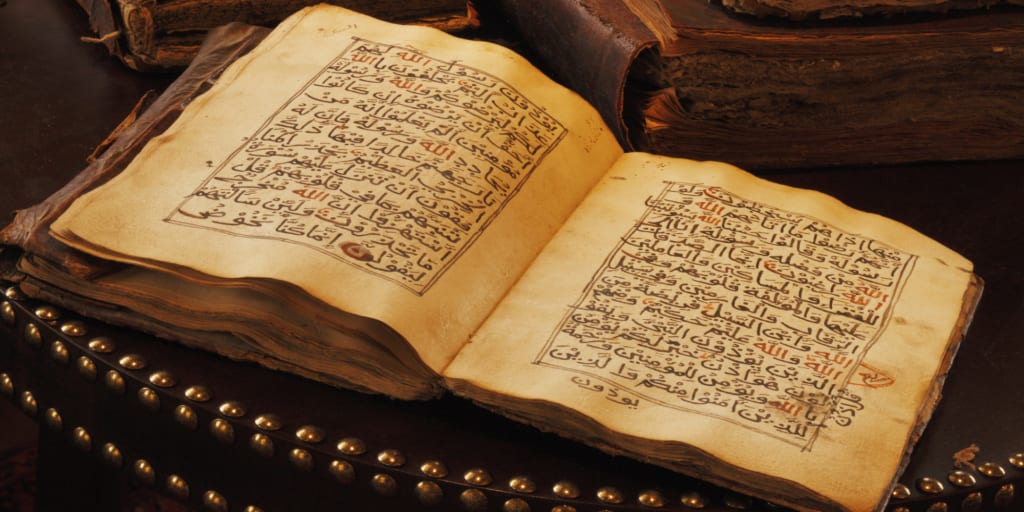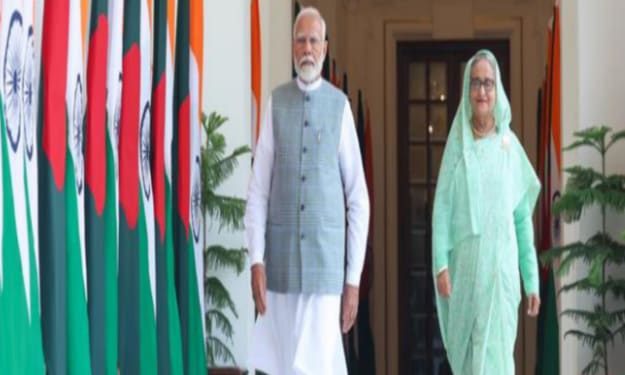ISLAM 'The right way'
story of a famous personalities that how he get into Islam...

Islam is one of the world's major monotheistic religions, with over a billion followers globally, known as Muslims. It is based on the teachings of the Islamic prophet Muhammad, who is considered the last and final prophet in Islam.
At the core of Islam are the beliefs in the Oneness of God (Allah in Arabic) and the prophethood of Muhammad. Muslims believe that God is eternal, omnipotent, and merciful. They also believe in the angels, the revealed scriptures (such as the Quran), and the Day of Judgment. The Quran, which Muslims believe to be the word of God as revealed to Muhammad, serves as the primary religious text in Islam. It is written in Arabic and is considered the ultimate source of guidance for all aspects of life. The Five Pillars of Islam are essential practices that every Muslim is expected to follow: Shahada: The declaration of faith, which involves bearing witness that there is no god but Allah and that Muhammad is His messenger. This testimony is a central aspect of Muslim belief. Salah (Prayer): Muslims are required to perform five daily prayers facing the Kaaba in Mecca. These prayers are observed at specific times throughout the day. Zakat (Charity): Muslims are obliged to give a portion of their wealth to those in need as a means of purifying their wealth and helping the less fortunate. Sawm (Fasting): During the month of Ramadan, Muslims fast from dawn until sunset. Fasting involves abstaining from food, drink, smoking, and other physical needs as an act of spiritual discipline and self-control. Hajj (Pilgrimage): Muslims who are physically and financially able are expected to undertake the pilgrimage to Mecca at least once in their lifetime. This pilgrimage occurs during the Islamic month of Dhu al-Hijjah. Islam emphasizes moral and ethical conduct, encouraging Muslims to lead a life that is just, compassionate, and respectful to all individuals, regardless of their background or beliefs. Muslims are encouraged to engage in acts of charity, show kindness to others, and promote justice and fairness. While Islam is diverse, and practices can vary among different cultures and communities, the fundamental principles and beliefs remain constant. Islam serves as a comprehensive guide for both individual and communal life, providing guidance on spiritual, social, legal, and ethical matters for its followers.
Throughout history, there have been several famous personalities from various fields who have embraced Islam. Some of these individuals have had a significant impact on their respective industries and also on the Muslim community. Here are a few examples of famous personalities who converted to Islam: Malcolm X (1925-1965): Malcolm X, born Malcolm Little, was an influential civil rights activist in the United States. He converted to Islam while serving a prison sentence and became a member of the Nation of Islam, a black nationalist religious organization. After his release, Malcolm X played a vital role in spreading Islam among African Americans and advocating for civil rights and social justice. Yusuf Islam (Cat Stevens): Yusuf Islam is a British singer-songwriter who achieved fame in the 1960s and 1970s as Cat Stevens. After a near-death experience and a period of self-discovery, he converted to Islam in 1977. Since then, Yusuf Islam has embraced his faith and continued his music career, creating songs that reflect his spiritual journey. Mike Tyson: Mike Tyson is a former heavyweight boxing champion and one of the most recognized athletes in the world. In 1992, he converted to Islam while serving a prison sentence for rape. Tyson credits his faith with helping him find inner peace and stability in his life. Jermaine Jackson: Jermaine Jackson, a member of the famous Jackson 5 and brother of the late Michael Jackson, converted to Islam in 1989. He has been an active advocate for Islamic causes and often speaks about his faith. Dave Chappelle: Dave Chappelle is a renowned comedian and actor known for his hit TV show "Chappelle's Show." He converted to Islam in the early 1990s and has since integrated his faith into his comedy and public life. Lindsay Lohan: Lindsay Lohan, a well-known actress and singer, announced her conversion to Islam in 2017. She has been seen reading the Quran and expressing her newfound faith publicly. Jermain Defoe: Jermain Defoe, an English professional footballer, converted to Islam in his early 20s. He has spoken about how his faith has helped him stay grounded and focused on and off the field. Cat Stevens (Steven Demetre Georgiou): The famous singer-songwriter Cat Stevens himself, before becoming Yusuf Islam, embraced Islam in 1977 after a period of spiritual exploration and soul-searching.
It is important to note that the decision to convert to Islam or any other religion is deeply personal and can be influenced by various factors, including spiritual exploration, exposure to Islamic teachings, or life-changing experiences. The examples above demonstrate the diversity of people who have found solace, purpose, and guidance in Islam, and how their faith has played a significant role in shaping their lives and perspective. Islam can offer several benefits for non-Muslims, even though they may not adopt the faith themselves. Here are some ways in which Islam can be beneficial for individuals who are not followers of the religion: Knowledge and Understanding: Learning about Islam can increase cultural and religious literacy, fostering better understanding and tolerance between people of different backgrounds. By studying Islam, non-Muslims can gain insights into the beliefs, practices, and values of a significant global community. Ethical and Moral Framework: Islam promotes a strong ethical and moral framework, emphasizing virtues such as honesty, compassion, justice, and generosity. These principles are shared by many other religions and philosophies and can serve as a basis for fostering a more harmonious and compassionate society. Interfaith Dialogue: Engaging in discussions with Muslims can foster interfaith dialogue, leading to greater mutual respect and cooperation between different religious communities. It helps build bridges and promote peace and understanding among diverse groups. Charity and Social Welfare: Islam emphasizes the importance of charity and helping the less fortunate. Non-Muslims can benefit from the various charitable organizations and initiatives run by Muslims, which often provide support to marginalized communities and humanitarian causes. Contributions to Art, Science, and Civilization: Learning about Islamic history and culture can shed light on the significant contributions made by Muslims to various fields, including art, architecture, science, mathematics, medicine, and more. This knowledge helps enrich the understanding of human achievements and cultural heritage. Spiritual and Personal Growth: Non-Muslims might find value in aspects of Islamic spirituality, such as mindfulness, prayer, and seeking a deeper connection with the divine. Practices like meditation and reflection, which are also present in Islam, can benefit individuals seeking personal growth and inner peace. Family and Community Values: Islam places great importance on family and community ties, and these values can resonate with people from diverse backgrounds who also prioritize the significance of family bonds and communal harmony. Respect for Environment: Islam teaches stewardship and respect for the environment. Non-Muslims concerned about ecological issues can appreciate the emphasis Islam places on protecting nature and using resources responsibly. It is essential to recognize that Islam, like any major religion, is diverse, and individual Muslims may interpret and practice their faith differently. As with any religious tradition, understanding Islam should be approached with an open mind and a willingness to engage respectfully with adherents of the faith. By exploring Islam's teachings and understanding its cultural and historical contributions, non-Muslims can gain valuable insights that can enrich their own lives and foster greater understanding and harmony in the world.
ISLAM IS FOR EVERYONE SO IF YOU HAVE DOUBT SO EXPLORE MORE ABOUT IT AND THEN ACCEPT ISLAM...
About the Creator
Enjoyed the story? Support the Creator.
Subscribe for free to receive all their stories in your feed. You could also pledge your support or give them a one-off tip, letting them know you appreciate their work.






Comments
There are no comments for this story
Be the first to respond and start the conversation.